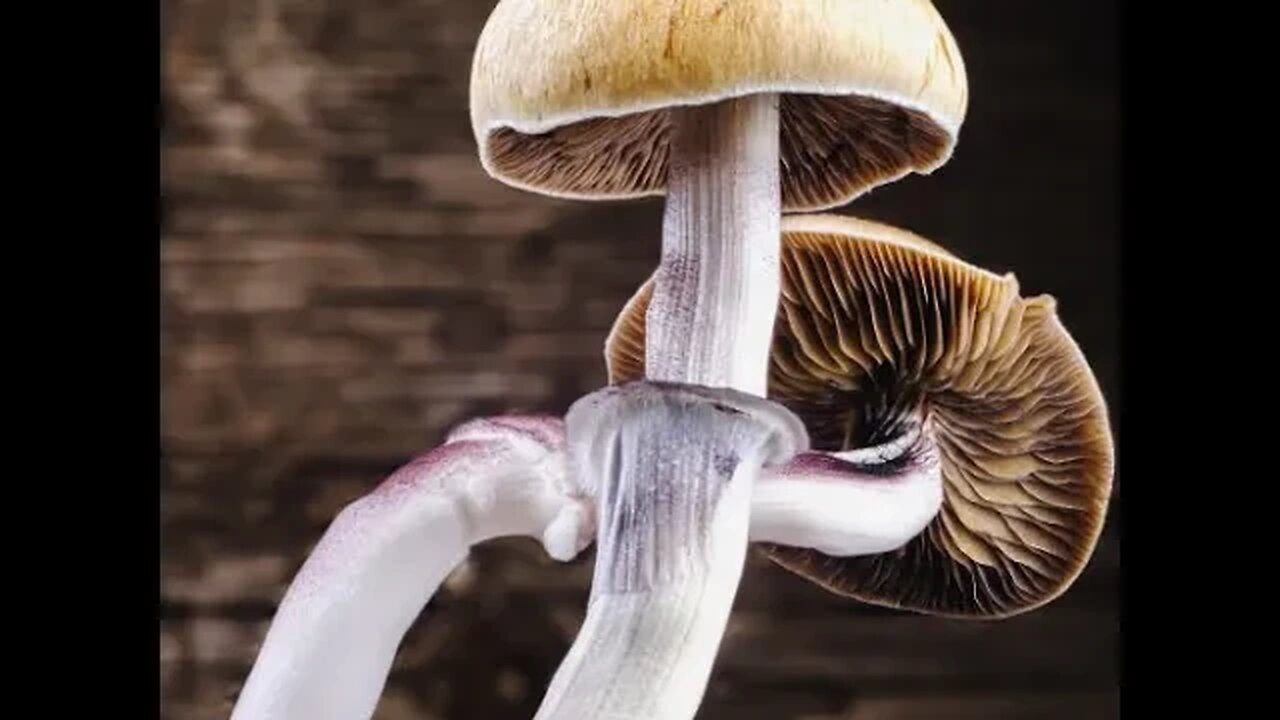Premium Only Content

Can Mushrooms Show Up in a Drug Test
https://www.mycophiliac.com/p/can-mushrooms-show-up-in-a-drug-test
sychedelic mushrooms, also known as magic mushrooms or simply "shrooms," have been used for centuries due to their hallucinogenic properties. The active ingredient in these mushrooms is psilocybin, which is converted into psilocin in the body and causes hallucinogenic effects. But can the use of these mushrooms be detected in a drug test? Let's delve into this topic. Can Mushrooms Show Up in a Drug Test? Understanding Psilocybin and Drug Testing Before we get into the specifics of drug testing for mushrooms, it's essential to understand what psilocybin is and how it works. Psilocybin is a naturally occurring psychedelic compound that is found in more than 200 species of mushrooms. When ingested, it is quickly converted into psilocin, which has mind-altering effects similar, in some aspects, to those of LSD, mescaline, and DMT. Drug tests are designed to detect the presence of certain substances in the body. The most common types of drug tests are urine, blood, hair, and saliva. These tests typically look for marijuana, cocaine, opioids, amphetamines, and alcohol. However, standard drug tests do not typically screen for psilocybin or psilocin. Psilocybin and Standard Drug Tests The standard 5-panel drug test, which is the most commonly used drug test, screens for cannabinoids (marijuana, hash), cocaine (cocaine, crack, benzoylecgonine), amphetamines (amphetamines, methamphetamines, speed), opiates (heroin, opium, codeine, morphine), and phencyclidine (PCP). As you can see, psilocybin is not included in this list. Even the more extensive 10-panel drug test, which screens for the above substances and prescription drugs like benzodiazepines and barbiturates, does not typically include a screen for psilocybin. Specific Tests for Psilocybin While standard drug tests do not screen for psilocybin or psilocin, there are specific tests that can detect these substances. These tests are not commonly used due to their high cost, and psilocybin is not an abused drug. However, they can be used for a specific reason to suspect someone has used psilocybin. A urine test can detect psilocin for up to 3 days after ingestion. Blood tests can potentially detect the presence of psilocin for a few hours after ingestion, but this method is rarely used due to its invasiveness and the short window of detection. Can Mushrooms Show Up in a Drug Test? Factors That Influence Detection Several factors can influence how long psilocybin stays in your system and how long it can be detected. These include the amount of the drug taken, the user's metabolism, the user's body mass, and the user's level of hydration. The more mushrooms a person consumes, the longer the psilocybin will stay in their system. Similarly, individuals with slower metabolisms may retain psilocybin longer than those with faster metabolisms. Dehydration can also potentially increase the time psilocybin stays in the system, as the body will be less efficient at eliminating substances. Legal Implications While drug testing for psilocybin is not standard, it's important to note that possession and use of psilocybin are illegal in many parts of the world, including the United States (except a few cities and states that have decriminalized it). Therefore, knowing the legal implications of using this substance is crucial. Types of Drug Tests Drug tests come in various forms, each with detection methods and target substances. Let's examine the most common types: Urine Drug Tests Urine tests are widely used to detect drug metabolites and determine recent drug use. These cost-effective and non-invasive tests make them popular in many workplaces and organizations. However, when it comes to mushrooms, the situation is quite different. Mushrooms contain a naturally occurring psychoactive compound called psilocybin. This compound breaks down into psilocin, responsible for the hallucinogenic effects experienced when consuming magic mushrooms. The human body rapidly metabolizes psilocin, and it has a short half-life. As a result, psilocin is unlikely to be detectable in urine after a short period, usually within 24-72 hours after consumption.
-
 6:06
6:06
Mycophiliac
8 months ago $0.17 earnedMillion Dollar Side Hustle Plan (Mushroom Farming)
186 -
 2:38:38
2:38:38
TimcastIRL
4 hours agoTrump Orders DOJ To FIRE EVERY Biden Attorney, Calls For CLEAN HOUSE w/Siaka Massaquoi | Timcast IRL
109K64 -
 1:29:31
1:29:31
Glenn Greenwald
7 hours agoGermany's Repressive Speech Crackdown Intensifies; U.S. & Russia Meet in Saudi Arabia and Open Cooperation; Plus: An Amazing Hate Crime in Florida is Buried | SYSTEM UPDATE #408
81.3K53 -

DLDAfterDark
2 hours ago $0.65 earnedDLD Live! What's Your Typical EDC/Civilian Load Out? Guns & Ammo & EDC?
9.56K -
 1:30:48
1:30:48
Redacted News
8 hours agoBREAKING! TRUMP AND PUTIN NEARING PEACE BUT EUROPEAN WARMONGERS TRYING TO STOP IT | REDACTED
164K235 -
 52:40
52:40
Candace Show Podcast
9 hours agoSaturday Night Lively: What Were They Thinking? | Candace Ep 148
142K147 -
 LIVE
LIVE
Man in America
4 hours agoDocumentary: The Money Masters 'How International Bankers Gained Control of America'
1,847 watching -
 1:10:40
1:10:40
PMG
1 day ago $0.79 earnedTom Hanks Plays a Racist MAGA Supporter On SNL!! UNBELIEVABLE
15.5K1 -
 2:11:29
2:11:29
Adam Does Movies
8 hours ago $1.62 earnedAsk Me Anything - Live!
20K -
 56:18
56:18
Flyover Conservatives
23 hours agoFollow the Money: $4.7 Trillion in Government Fraud EXPOSED!; Flu Shots, Fear & Big Pharma Lies—What They DON’T Want You to Know - Dr. Stella Immanuel | FOC Show
25.3K